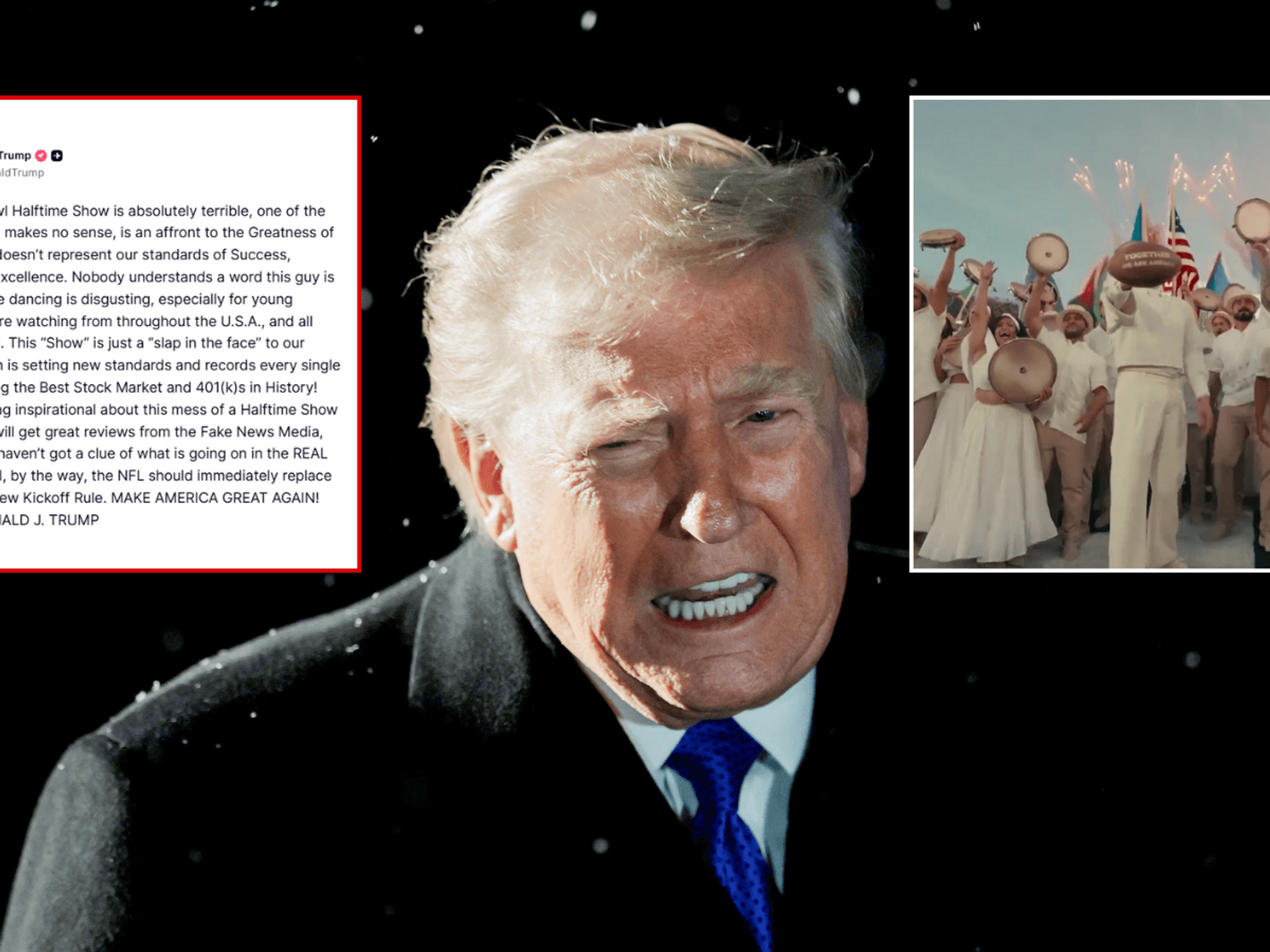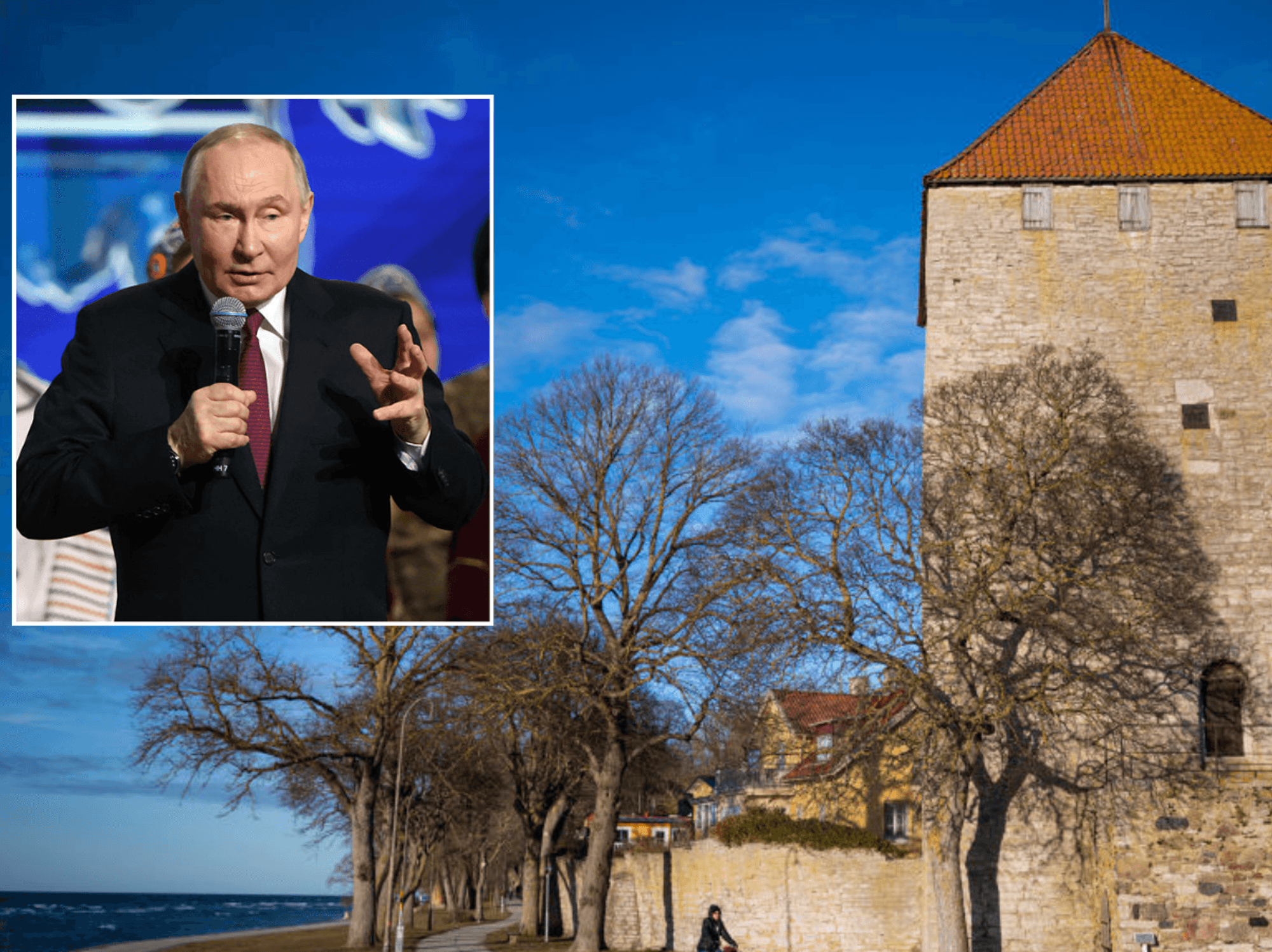Donald Trump urges Iranians to immediately 'evacuate' as Israel vows to 'finish' Tehran 'tyrants'
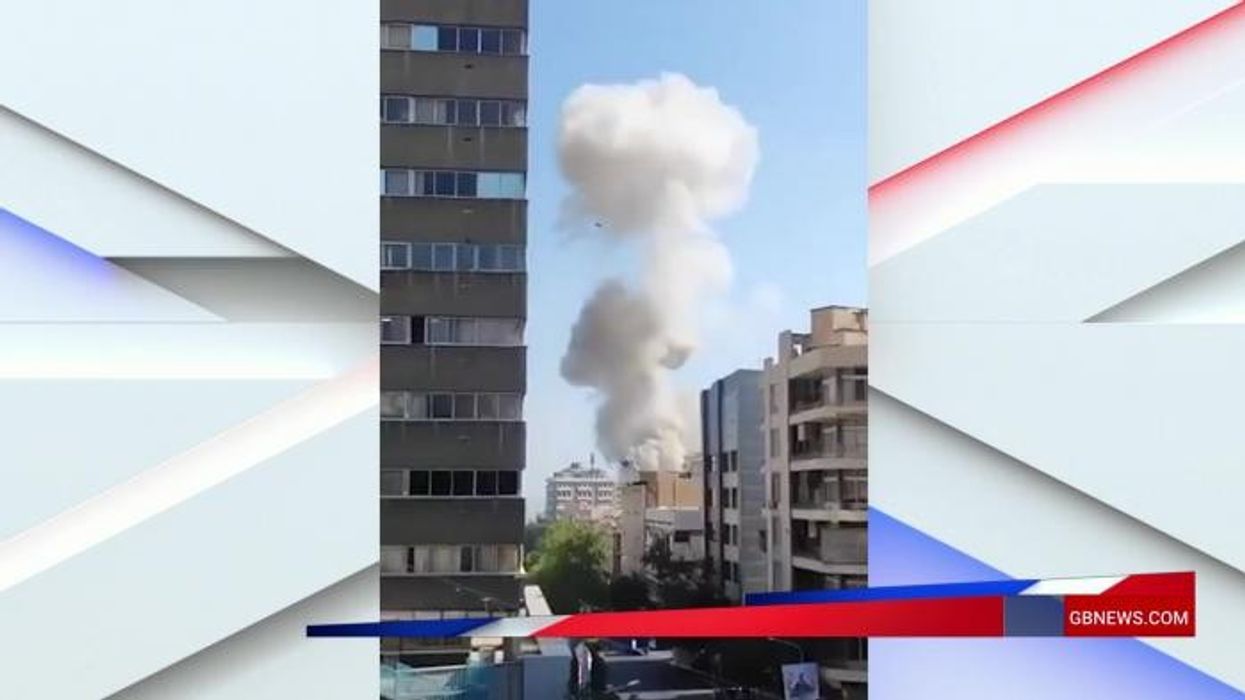
GB News

White House officials have distanced themselves from the Israeli strikes
Don't Miss
Most Read
Trending on GB News
Donald Trump has issued a warning to Iran as he called for an "immediate evacuation" of Tehran just hours after Benjamin Netanyahu vowed to "finish" Tehran's "tyrants".
Following the G7 summit in Canada, world leaders called for a de-escalation of the worst-ever conflict between the regional foes, saying Iran was a source of instability and must never be allowed to have a nuclear weapon.
The US President left the event early but denied that his departure had "anything to do with" working on a deal between Israel and Iran.
In a post on Truth Social, Trump branded Iran "foolish" for failing to sign a nuclear agreement before Israeli strikes commenced.
He wrote: "Iran should have signed the deal I told them to sign. What a shame, and waste of human life.
"Simply stated, IRAN CAN NOT HAVE A NUCLEAR WEAPON. I said it over and over again! Everyone should immediately evacuate Tehran."
The warning arrives as Israel intensifies its military campaign targeting Iran's nuclear programme, with the Israeli Air Force intercepting fresh Iranian missile launches this morning.
Netanyahu failed to rule out assassinating Iran's Supreme Leader Ayatollah Ali Khamenei, stating such action would "end the conflict" between the nations.
LATEST DEVELOPMENTS:
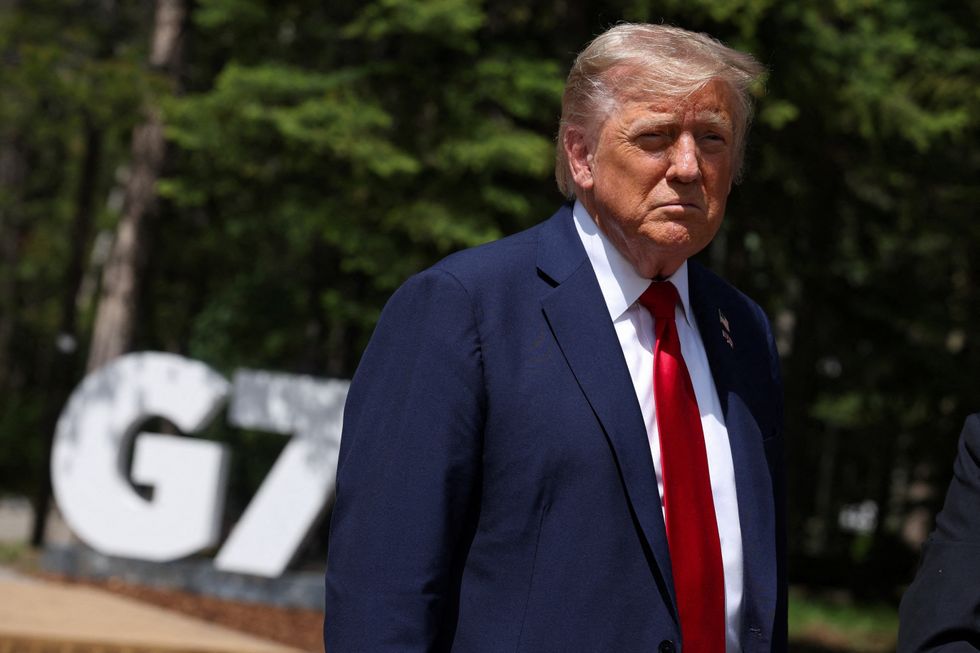
President Donald Trump has issued a stark warning calling for the 'immediate evacuation of Tehran' as the conflict between Israel and Iran enters its fifth day
|GETTY
In a 20-minute interview with ABC News, Netanyahu defended Israel's military operations to "defang" Iran and likened Khamenei to a "modern Hitler".
When questioned about reports that Trump had vetoed an Israeli plan to eliminate the supreme leader over escalation concerns, Netanyahu dismissed the notion.
He said: "It's not going to escalate the conflict, it's going to end the conflict."
The Israeli leader argued that Iran seeks a "forever war" and is "bringing us to the brink" of nuclear conflict.
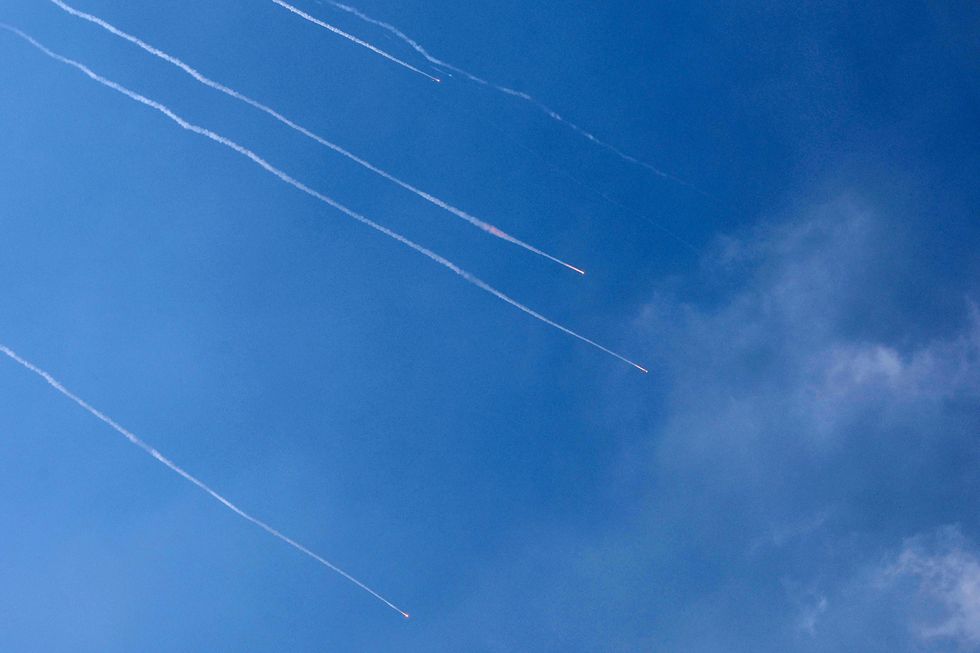
Rocket trails are seen in the sky above the Israeli coastal city of Netanya amid a fresh barrage of Iranian missiles
|Getty
He added that Israel's actions were preventing this outcome by "standing up to the forces of evil".
Asked directly whether Israel was targeting the Ayatollah, Netanyahu responded: "We're doing what we need to do."
The Israeli Prime Minister has described his country's military campaign as a defensive war and a critical moment for Iranians to fight back against a regime that poses a threat to Israel and the region.
Netanyahu told Iranian dissident media: “The tyrants of Tehran basically planned two weapons of mass death to exterminate Israel.
“One is to rush forward with their nuclear program to develop atomic bombs to destroy Israel, second, they’ve programmed to build a vast missile arsenal, each missile carrying a one-ton payload, just slamming into our cities, killing our women, our children.”
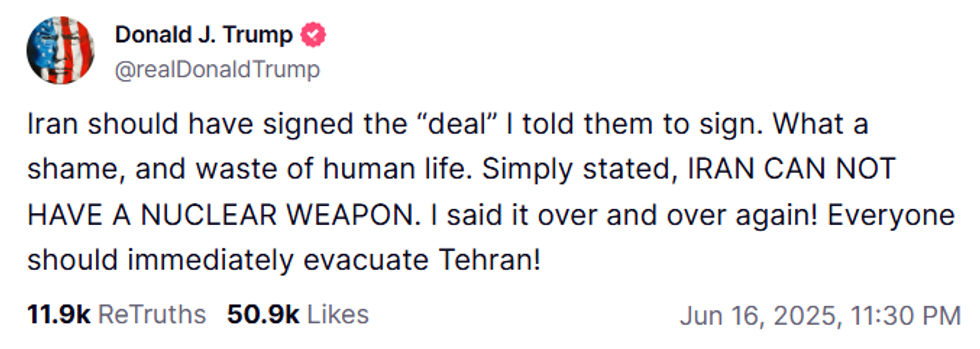
The US president branded Iran 'foolish' for failing to sign a nuclear agreement before Israeli strikes commenced
|TruthSocial
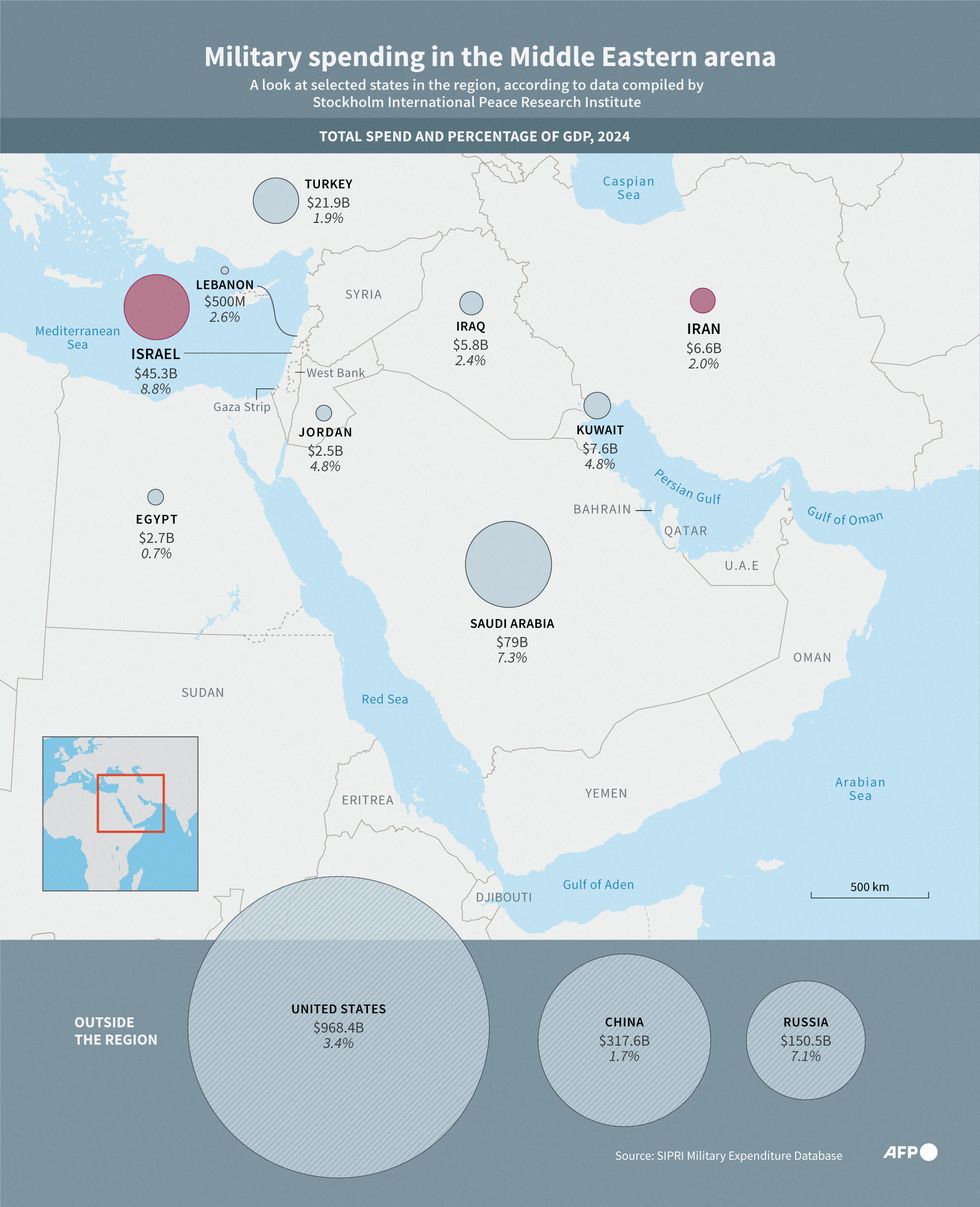
Infographic showing 2024 military expenditure in selected territories of the Middle East, plus major powers outside of the region, according to data compiled by SIPRI
|Getty
White House officials have distanced themselves from the Israeli strikes, denying any US involvement in attacks on Iran.
Speaking earlier in the day at the G7 summit, Trump expressed optimism about reaching an agreement, stating: "As I've been saying, I think a deal will be signed, or something will happen, but a deal will be signed, and I think Iran is foolish not to sign."
However, Israeli media reports suggest the Trump administration is preparing plans for potential military involvement "if Donald Trump gives the green light".
A senior official told i24 News that whilst US Central Command favours joining the operation, other senior administration officials oppose the move.
The source revealed that Trump personally approved plans to deploy forces in the Middle East, bypassing the typical decision-making process involving the Secretary of Defense.








